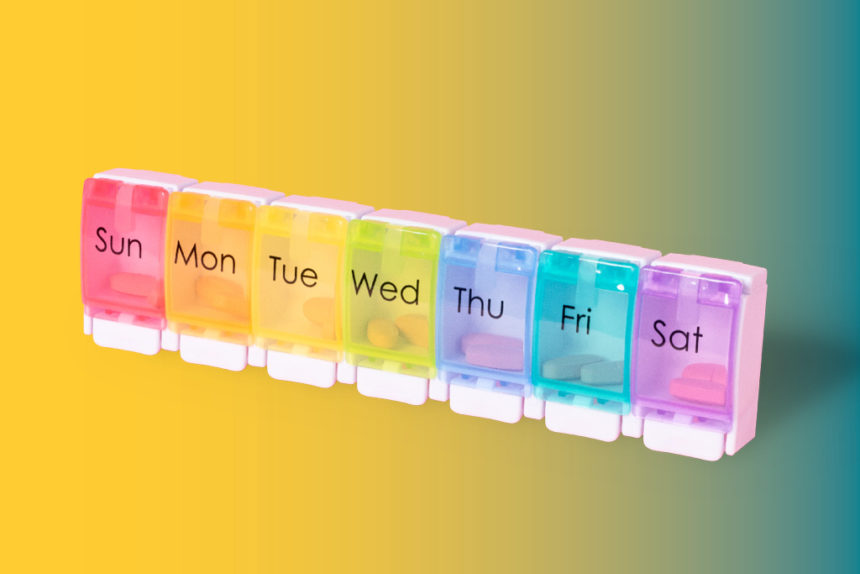Pharma marketers gathered at last Thursday’s MM+M Awards dinner to celebrate work that creatively draws attention to health issues and benefits patients. Sitting amidst the throng, a few thoughts came to mind.
One was the fragility of my own health. It had been about 13 months since COVID-19 sidelined me just weeks prior the 2021 awards bash. The second was gratitude, to once again be able to attend this annual rite of fall in good shape.
But a nagging concern also crept in, and it was triggered by the acceptance speech given by our Platinum award winner. Allison Schmitt has anchored the U.S.A. Swimming team at four Olympic Games and collected an astonishing 10 medals. Through it all, she has lived with depression — a fact likely lost on anyone who comes into her upbeat and charming orbit.
“Everyone was telling me how lucky I am and how they wished they were me,” she recalled about her experience at the 2012 London games. There, she claimed gold in the 200-meter freestyle, one of five medals added to her bronze in Beijing four years prior. But something didn’t sit right, and it went far beyond simply a passing phase of fatigue.
“I was dreaming of feeling normal, feeling happy, feeling like a human,” Schmitt said. “Instead, over the next two-and-a-half years, I isolated. I internalized dark feelings. Did that mean that I didn’t have any good days? Absolutely not. But it did mean that most of my bad days overrode my good days.”
Schmitt took the audience forward to early 2015, and a panicky, exhausted and desperate place known as depression.
“Specifically, I remember January 3, 2015. I was laying in my bed contemplating what would be the best way to make my death look accidental,” she recalled. “I didn’t see a purpose to live. ‘No one would miss me.’ I realized that this wasn’t the way I wanted to live; this wasn’t what I dreamed of. And this feeling terrified me. I didn’t want to die; I just wanted that pain to go away.”
It was the tragic suicide of of Schmitt’s cousin, April Bocian, who ended her life in May 2015 just a week after turning 17, that spurred Schmitt’s decision to speak out. She now helps educate others on the importance of mental wellness, calling for more structured post-Olympic mental health support for athletes. She’s also working toward a master’s degree in social work and plans to pursue a career in mental health after leaving the pool.
How can anyone — especially healthcare marketers — hear this woman’s story and not be moved by her resilience?
“Healthcare marketers have an important role to play in amplifying the need for more resources and less judgmental views on the topic,” Schmitt confirmed.
Yet none of the MM+M Award winners were celebrated for creative output focused on destigmatizing conditions like depression or anxiety. Given the numbers, it’s a glaring gap.
Nearly one in four young adults (22%) were treated for such issues during the pandemic, according to the Centers for Disease Control and Prevention. What’s more, mental health-related visits to emergency rooms jumped 31% in 2020 over 2019 for adolescents ages 12 to 17. In early 2021, suicide attempts among adolescents girls were more than 50% higher than they were in 2019.
Globally, prevalence of anxiety and depression rose 25% in the first year of the pandemic, according to the World Health Organization. WHO Director-General Dr. Tedros Adhanom Ghebreyesus called that finding “just the tip of the iceberg.”
I’m sure the enormity of this crisis was not lost on many of the roughly 750 people attending the awards dinner (and the hundreds more who tuned in virtually). Hopefully, a few felt a newfound sense of urgency.
Where to start? One of the biggest barriers to seeking diagnosis and treatment is embarrassment and stigma. When the U.S. Preventive Services Task Force last month recommended anxiety screening for all adults under age 65, some hailed it as a victory.
“Universal screening destigmatizes,” one agency exec said. “When all are screened, it reduces whatever shame or embarrassment that may stand in the way of asking for help.”
But we still need creative work to stimulate demand for that screening, and connect those battling mental illness with advice and support — work like the pro bono campaign by Havas’ Janis Cohen and Dan Weber on behalf of Alessio’s Glad House, which was designed to dispel such negative perceptions.
No doubt this is a difficult topic. But in years to come, I hope the industry steps up and that mental health has a bigger presence in its award programs. Thank you, Allison, for sharing your story. Of your many trips to the awards podium, I hope that this one will inspire a movement.
For a transcript of Allison Schmitt’s recent appearance on the MM+M Podcast, click here.







